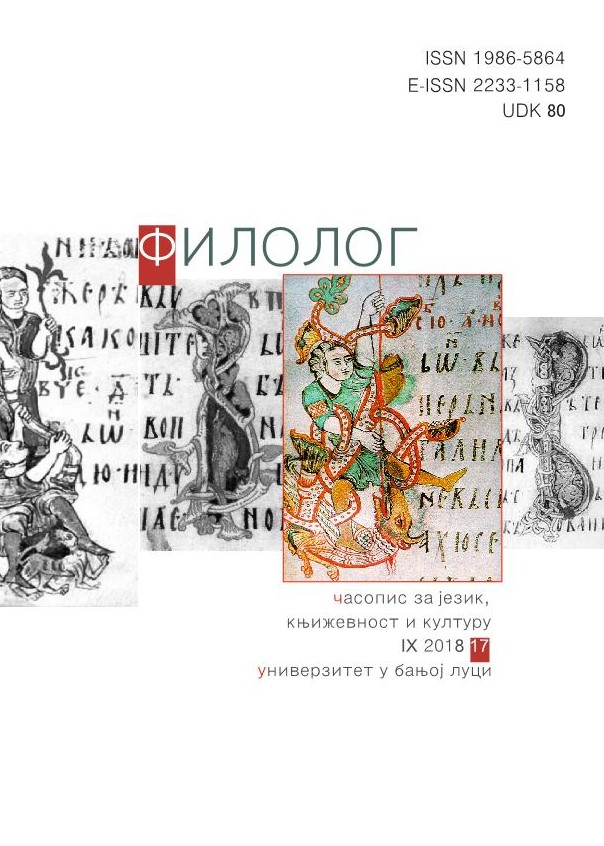La féminité du monde dans « Le Premier Siècle apres Béatrice » d'Amin Maalouf
The Womanhood of the World in the Novel “The First Century after Beatrice” by Amin Maalouf
Author(s): Vesna R. CakeljićSubject(s): Language and Literature Studies, Studies of Literature, French Literature, Philology, Theory of Literature
Published by: Филолошки факултет Универзитета у Бањој Луци
Keywords: femininity; woman; discrimination; selective abortion; migrations; Amin Maalouf; The First Century after Beatrice (Le Premier Siecle après Beatrice).
Summary/Abstract: In his futuristic novel entitled The First Century after Beatrice (1992), Amin Maalouf condemns the systematic discrimination of and crimes against women, focusing his efforts on an extremely disturbing phenomenon affecting some countries, in particular China and India, in terms of the lack of tens of millions of women in the general population. The phenomenon concerned is the killing of girls and the performing of selective abortions with a view to preventing female babies to be born, resulting in a gender imbalance that may push the world over the edge. The narrator – the protagonist of the story – a famous French entomologist, witnesses certain events in various parts of the world over the course of the first three decades of the 21st century, which have endangered the existence of women and, consequently, the whole of humanity. Due to the abuse of a mysterious ‘substance’ that favourises giving birth to boys, the number of women begins to decrease drastically and the world plunges into violence and hatred. That ‘substance’, which is initially regarded as medicine, becomes an efficient pharmaceutical industry weapon, capable of decimating some hostile tribe, even an entire race of people. Men fear for their wives and daughters, who are now a rarity. By analysing multiple layers of the novel’s structure, female characters in particular, the paper first focuses on the writer’s attitudes on the significance of femininity and on the way our relation towards woman influences the future of contemporary societies. Then it shifts to Maalouf’s image of cruel misogynist traditions that deny a woman her right to life. In the end, it explores certain alarming phenomena that affect the world today, such as emigration on a mass scale caused by the economic gap between rich and poor countries, as well as identity clashes. In this analysis of Maalouf’s story on the defence of women’s existence, we also provide a review of humanistic messages by this French writer of Lebanese origin, a visionary for whom ‘the womanhood of the world’ is close to his heart.
Journal: Филолог – часопис за језик, књижевност и културу
- Issue Year: 2018
- Issue No: 17
- Page Range: 429-442
- Page Count: 14
- Language: French

